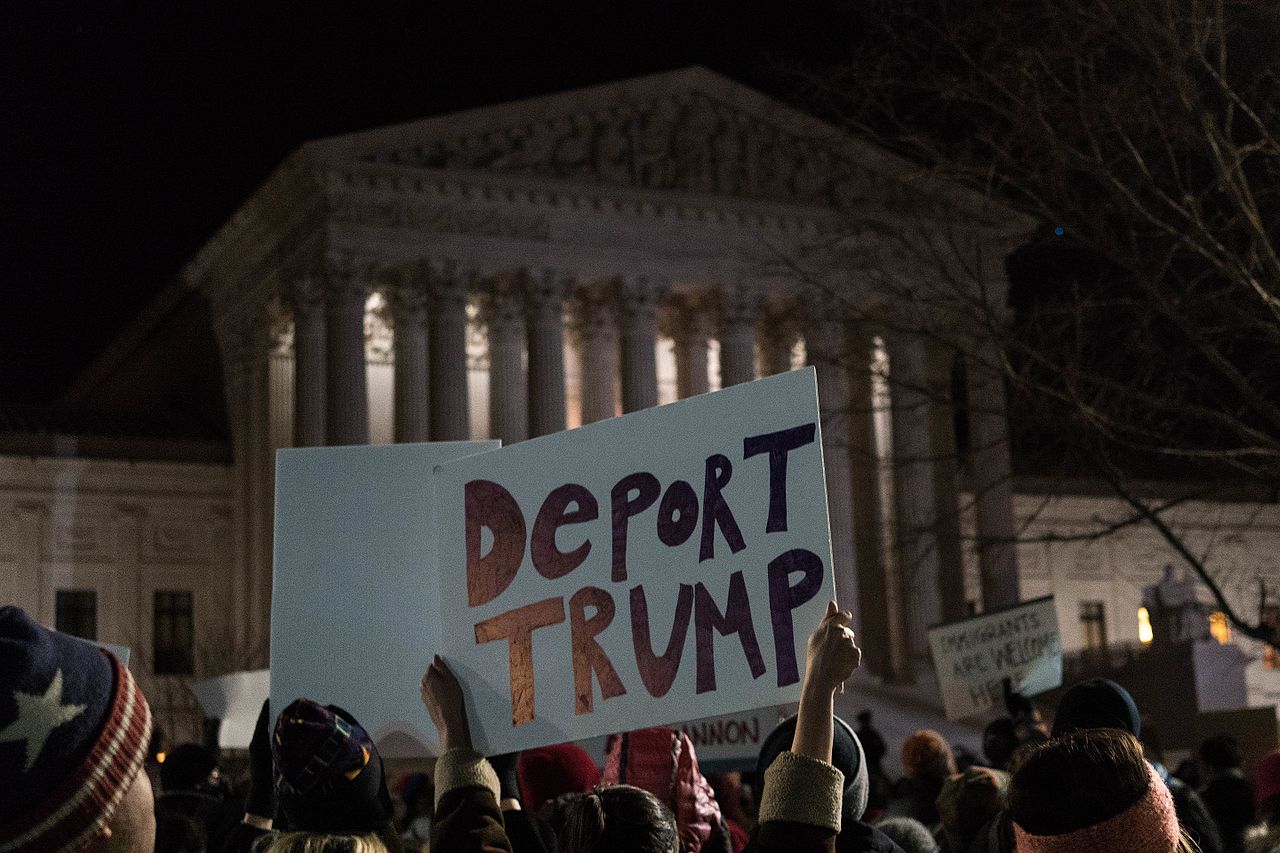Views expressed in opinion columns are the author’s own.
The Trump administration’s denunciation of the white supremacist rally in Charlottesville, Virginia, is meaningless as long as his travel ban is in effect. President Trump’s 90-day travel ban will hit its two-month anniversary Tuesday, and while it has had little positive impact, the negative effects are quite tangible.
The travel ban, which prevents individuals from six Muslim-majority countries — not including Iraq — from entering the United States, has been altered in several ways since its creation. When it took effect June 29, the ban came across as an act of racism and wishful thinking to many. Banning Muslims from entering the U.S. does not equal banning terrorists — it’s just not that simple.
The ban is much more than an inconvenience or insult to Muslim Americans and citizens of those six countries, it is an acknowledgment that the current administration believes the stereotype of the pious Muslim terrorist. And it is unlikely that only those against the ban see it that way — it encourages a hatred and fear of immigrants across the board.
People other than individuals from the original seven countries — including Iraq — in the ban were detained when the travel ban was first signed. The wording of the original executive order was so unclear that people from a variety of South Asian and Middle Eastern countries were being stopped at airports as well.
Our homes became uncertain and unsafe for anyone who looked like an immigrant from that region. My father, who was on a green card at the time and has resided in this country for almost 11 years, was advised to carry his proof of residence and other documents verifying his legal status in the United States. The travel ban, often called the Muslim ban, promotes ignorance and fosters distrust and hatred in the U.S.
Iranian UMD student Maryam “Aida” Mohammadi recalled her detention at Dulles airport and said she thought she was “safe” from the ban because she had a green card. Mohammadi was just one of many legal U.S. residents who were detained, and on a deeper level insulted and discriminated against, because of inaccurate stereotypes.
For the Trump administration to denounce the violence and racism in Virginia this weekend is quite hypocritical given that the travel ban essentially targets anyone who “looks like a terrorist.” As we learned from the death of a 32-year-old woman during the rally, terrorism comes in many forms. The Illinois Senate adopted a resolution Aug. 13, which recognized neo-Nazi and white nationalist groups as terrorist organizations, but Trump was reluctant to even call the act terrorism.
The ban, just like these domestic terrorist organizations, has made immigrants feel unwelcome and unsafe, regardless of how long we have been here legally.
It was almost a surprise that the Trump administration condemned the events in Virginia because the travel ban is as equally offensive and racist as the Charlottesville violence. We often think the United States has made major gains against racism and prejudice, and it certainly has. But it does nothing to speak out against racism one moment and promote it the next.
Liyanga de Silva is a sophomore English major. She can be reached at liyanga.a.ds@gmail.com.



